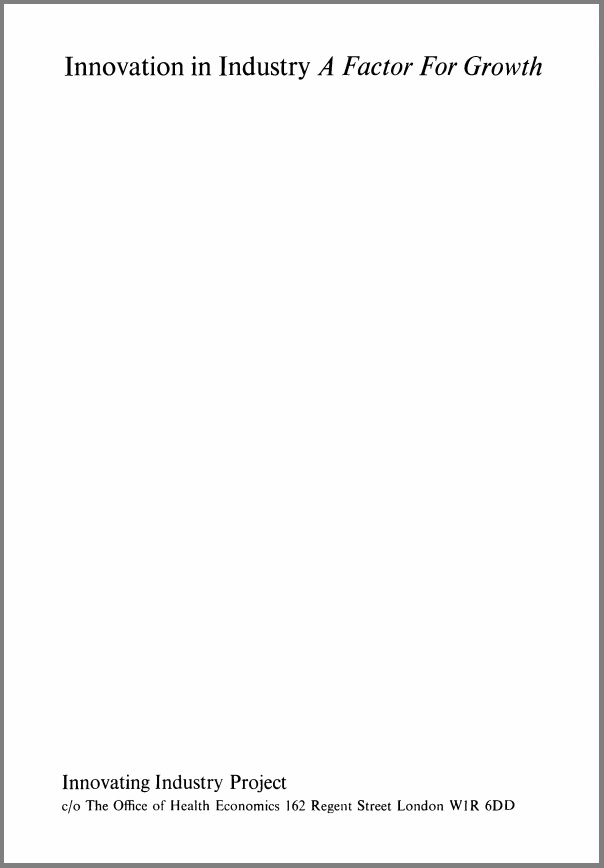Over the past few years there has been a growing concern with Britain’s record of industrial innovation based upon technology. This stems from two factors. Firstly,…
Over the past few years there has been a growing concern with Britain’s record of industrial innovation based upon technology. This stems from two factors. Firstly, it is increasingly appreciated that the UK’s success, if not survival, as a trading nation depends upon …
Over the past few years there has been a growing concern with Britain’s record of industrial innovation based upon technology. This stems from two factors. Firstly, it is increasingly appreciated that the UK’s success, if not survival, as a trading nation depends upon its ability to produce and sell new products which are more advanced, more efficient, or of better design than those of our competitors in world markets. Secondly, it is clear that the UK ’s achievement in successfully marketing new products, whether at home or abroad, is unsatisfactory relative to that of other leading industrial nations; yet our research and development – the important first stage of the innovative process – is o f a scale which is only exceeded by the USA and USSR.
This concern has been reflected in the growing discussion in press, journals, and conferences of the numerous aspects of innovation. Many different factors have been put forward as reasons for the UK’s poor record (some of these are shown in Table 1). In mid-1968 many of the conclusions reached were summarized in a report of the Central Advisory Council for Science and Technology.
Yet despite this wide discussion it is still too often unclear just how the climate for advance can be improved. There is insufficient information in adequate detail to explain why a handful of British companies has been so successful as innovators, while British industry as a whole has such a disappointing record. Generalised remedies have been put forward in plenty; but, by and large, these lack weight due to a shortage of hard, descriptive case-study or statistical information to support them.
This shortage of information is paralleled by insufficient awareness in many government, public and industrial sectors that technological innovation is a special process and cannot adequately be understood by applying principles which relate to ’traditional firms in conditions of static technology.
